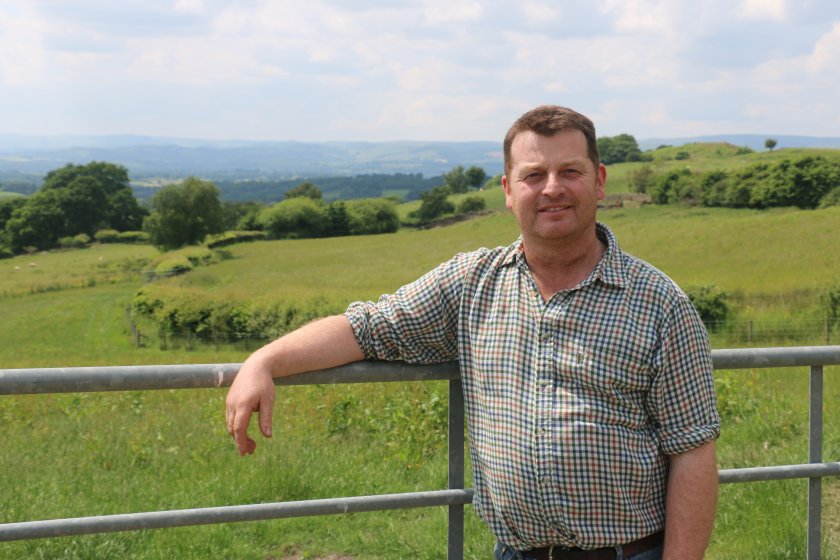
A grassland farm in Wales is researching whether rock dust sourced from a local quarry can provide sufficient nutrients to grow grass.
Finely ground basalt rock produced at a quarry in Builth Wells has been applied to one half of two fields covering 2.4 hectares at Upper House, in Powys.
Growth will be compared to land where basalt and fertiliser only has been applied and to a control area which has received no treatments.
Sward composition of both fields was assessed at the start of the project and growth will now be monitored over the coming months.
This exercise will be repeated in the spring, on fields earmarked for silage or hay, and the response also measured.
Soil samples pre and post application will also be assessed to establish any differences.
Gareth Davies, who farms beef and sheep at Upper House, says if the project results are favourable, it would reduce his reliance on oil-based fertilisers.
“I had not heard of basalt rock dust until six months ago," he admits. It costs around £40 a tonne delivered and spread.
As well as financial gains to his business, he says there could also be a benefit to the environment as adding rock dust to farmland is believed to remove and lock up carbon dioxide from the atmosphere.
The research will be funded by Farming Connect's 'Try Out Fund', which offers up to £5,000 to help fund on-farm trials that experiment with new ideas.
Non Williams, who is overseeing the basalt rock dust project, said Farming Connect had developed the fund to help improve efficiencies and profitability within farm businesses whilst protecting the environment.
She said the results of this project will be shared with other producers in Wales after it concludes at the end of 2024.
Other projects awarded funding include growing lucerne to increase the resilience of lamb finishing systems to summer drought and establishing the most suitable crops for under sowing brassicas.
Ms Williams said: “Funding can be used for technical assistance, sampling, testing and other reasonable expenses such as those relating to short term hire of specialist equipment or facilities directly relating to the project."
The new application window for the fund opened on 9 October and will run until 20 October.
